An LED screen wrap was used to film bus scenes at Bottle Yard Studios
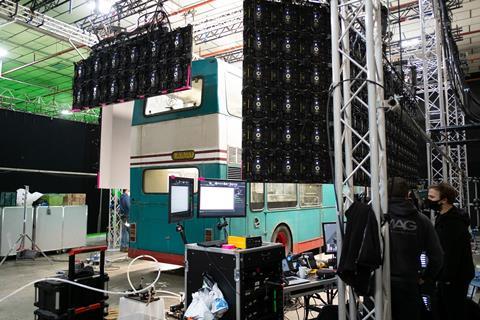
Wildseed Studios has revealed the innovative use of LED screens and green screens used in the filming of Netflix Original The Last Bus.
Filmed at Bottle Yard Studios in Bristol, the production used the LED screens as a wrap around a double decker bus - allowing it to shoot in any direction with any backdrop. They claim this is the first time that this has been done.
It also took advantage of Bottle Yard’s 5,000 sq ft green screen, adding bespoke hydraulic systems to increase what could be done without digital effects.
The Last Bus becomes available on Netflix on 1 April, and sees Robert Sheehan (Umbrella Academy, Misfits) and Tom Basden (After Life, Plebs) star in a ten-part series following a group of mismatched students on a school trip who become unlikely heroes when a robot apocalypse zaps away the rest of humanity. It was created and written by Paul Neafcy, and directed by experienced directors Lawrence Gough and Steve Hughes, as well as the up-and-coming Drew Casson and Nour Wazzi.
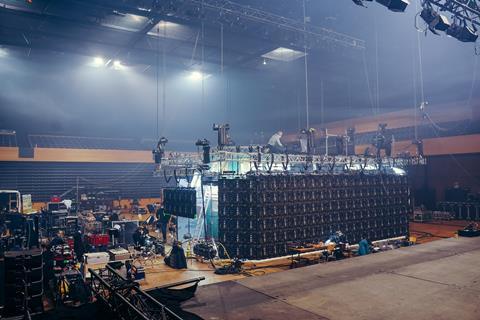
Producer Andy Mosse explained: “Filming on location is expensive so we had to find a way of getting the bus scenes filmed in the studio at The Bottle Yard. Traditionally this is done with a green screen, but we developed a way to use LED screens as a full 360 degree wrap around the bus so that we could shoot in any direction with any backdrop, which hadn’t been done before.
“The panoramic 360 images we projected were captured with 12 x 4K cameras built on a bespoke rigged car we called the ‘hotdog’. Combine this with some hydraulic Wallace and Gromit type levers plugged into the suspension of the bus, you’ve got a moving bus interior that bumps and weaves with the road and can be shot in camera with no digital effects needed.”
Wildseed’s managing director, Miles Bullough, added: “Bristol is Wildseed’s home and it was important for us from the outset that The Last Bus should be made here in the city. The Bottle Yard was our ideal facility, with its vast green screen and adaptable spaces. At one point we had 5 double deckers parked up together inside; an impressive sight, not to mention a parking feat.
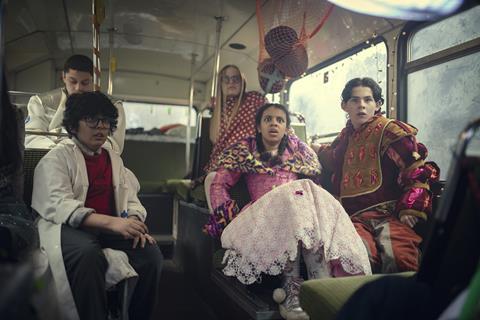
“The Studios gave us space and freedom to push the boundaries of what we could do on the green screen using LED, which was a real gamechanger. Plus their onsite college students studying Film & TV with boomsatsuma got to see those sets and learn about the shoot which is so important for new talent coming up. The Film Office made it easy to film at Redcliffe Caves and The Downs, awesome locations right here on our doorstep, and we found all the other locations we needed nearby in the South West.”
In addition to Sheehan and Basden, The Last Bus cast includes Lauryn Ajufo (Boiling Point) and Moosa Mostafa (Nativity Rocks, Tim Burton’s Wednesday), complete newcomers Marlie Morrelle and Bristol-based Phoebe De Silva, who were discovered from a school search of thousands of young people for their first acting role, and more experienced talent including Carys John (School of Rock, Love Me, Parch), Nathanael Saleh (Mary Poppins Returns, The Letter for the King), Daniel Frogson (His Dark Materials), Lara McDonnell (Belfast, Artemis Fowl) and Curtis Kantsa (Blue Story). The cast was put together by Isabella Odoffin in her first TV job as sole casting director.
The Last Bus was shot over 19 weeks at Bottle Yard Studios, with on-location shoots at Bristol’s Redcliffe Caves and The Downs with support from the city’s Film Office. In addition, filming took place at other South West locations including Cheddar Gorge, Brean Leisure Park and Wookey Hole in Somerset and the Eden Project in Cornwall.
Laura Aviles, senior Bristol film manager (The Bottle Yard Studios & Bristol Film Office) said: “We welcome every production that chooses to film in Bristol but The Last Bus, made by a homegrown company doing consistently fantastic work to develop new young talent, is a title we are particularly proud to have hosted.
“Wildseed’s approach to making scripted prime-time content, by discovering young creatives through their open access ideas portal, mentoring them through their development and pitching their ideas to premium platforms, is forward-thinking and refreshing. In the studio they showed themselves to be equally innovative in a technical sense. The result is a Bristol-made series that looks amazing and will no doubt be thoroughly enjoyed by family audiences the world over.”
Images: Netflix/Wildseed Studios


























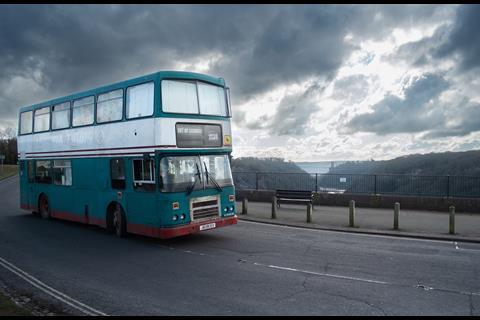
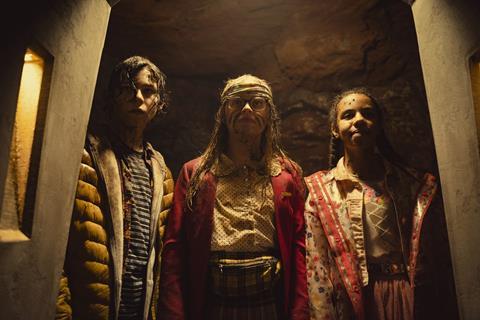
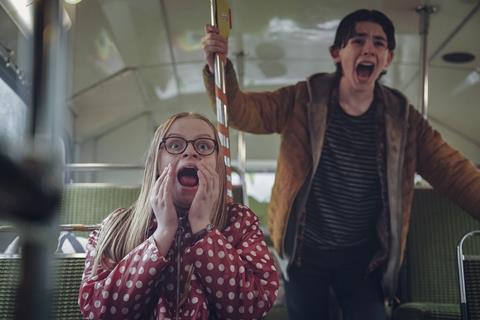
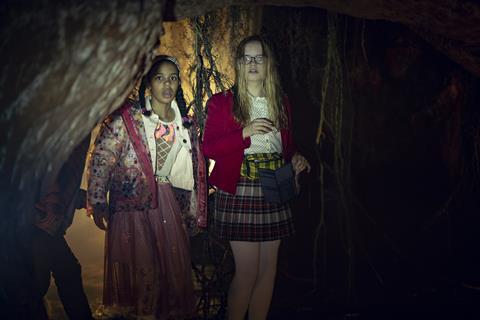
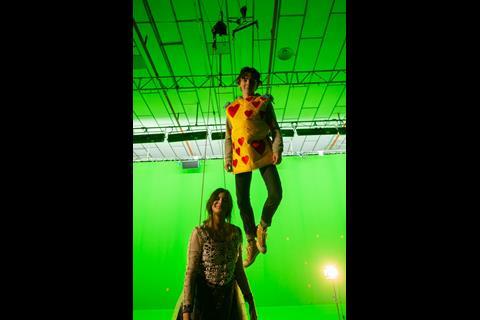





















No comments yet